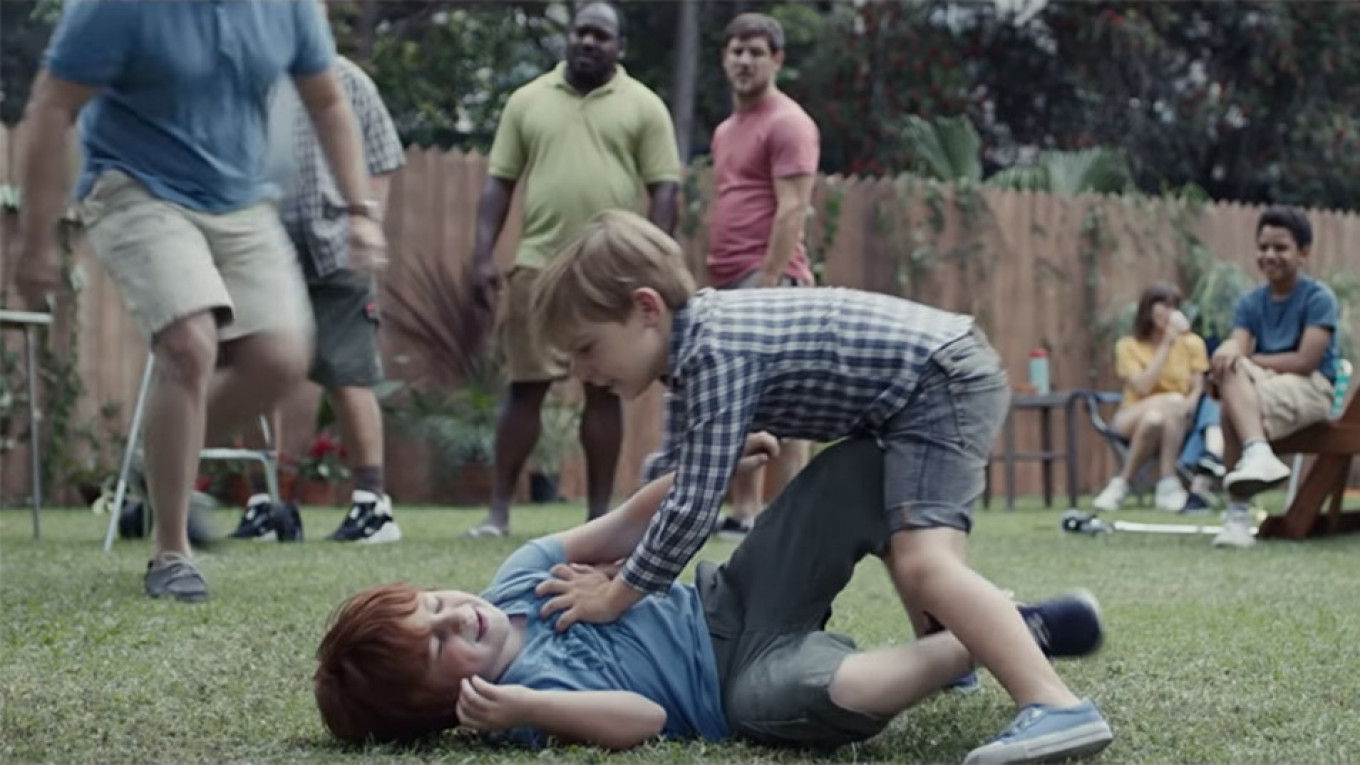Another scandal has broken out on Russian social media, this time centered around the razor company Gillette. Gillette, which for decades has branded itself as the choice for “real men,” recently released an ad about the dangers of toxic masculinity.
In Russia, of course, this ad wasn’t shown — and won’t be shown — on TV, but as reactions to other gender-related publications have demonstrated, many Russian men see themselves as part of the Western context in which feminists and other social justice warriors have ostensibly taken over in order to prevent men from even breathing in peace.
Harassing women on the street and at work is forbidden, fighting is forbidden, taking advantage of intoxicated women is forbidden — now, men are a bit wary of these habitual and necessary forms of interaction (though this, of course, is not actually the case).
Now the Gillette's ad, it would seem, has stripped away men’s last shred of dignity. And it doesn’t matter that it’s one of the the only ads of its kind: scores of advertisements still sing the praises of aggressive masculinity and represent women within a standard framework.
Women are portrayed as unintelligent, hopelessly lost when it comes to technology, and it’s always the women who perform household tasks. They’re also mercilessly sexualized and often portrayed as inanimate objects like in the “Baltika Beer Zero” commercial, which “loves to refresh.”
On top of all this, several years ago a few truly monstrous ads were released (one for a bank, another for a hardware store) in which women were abducted, thrown into trunks, threatened and intimidated. My friends and I were sickened by these ads, especially considering that one was released around the same time as the news covered the story of Dmitry Grachev, a 26-year-old man from Serpukhov who dragged his wife into the woods and cut off both her wrists.
In response to outraged responses to the ads, male Facebook users protested that these were only advertisements, that feminists didn’t have a sense of humor, that some people get offended by everything and look for discrimination everywhere, that the advertisements were awesome, that freedom of speech is more important than anything else and that the videos were actually quite well-done, otherwise feminists wouldn’t be all up in arms about them.
And then the Gillette advertisement came out, and those who had been reproaching everyone else for their excessive sensitivity and inability to take a joke were suddenly offended.
According to the offended parties, the ad portrays all men in a bad light and accuses all men of bullying and harassing women. This is despite the fact that the ad not only depicts men behaving badly, but also shows men who act differently — the “good men” — which conveys that the ad’s authors believe in men’s potential to be better. Still, many were quick to take to heart only the “dark side” of masculinity depicted in the advertisement.
Meanwhile, while viewers were defending the reputation of men by arguing that all men are different and shouldn’t be subject to this kind of categorization, the same group paradoxically began to defend a man’s right to fight, bully and even beat his wife “if warranted” — apparently, these practices constitute the array of gentlemanly activities that make “men, men.”
As I watch these arguments develop — in which men fight for the right to possess this identity of toxic masculinity — it never ceases to amaze me how much better feminists think of men than men do themselves. After all, we don’t believe men to be controlled by a natural instinct that propels them towards violence. We believe in the best of men and blame toxic masculinity itself for creating a harmful cultural standard.
There have been volumes of research written on the detrimental effects of toxic masculinity — both to men themselves and to their loved ones, especially women and children.
So what harm could a video clip claiming it’s bad to fight, molest women, and harm others really do other than rattle those who know in their hearts that the advertisement is directed towards them?
There’s a popular hashtag in the West — #masculinityissofragile — and if you scroll through its contents you’ll see a wealth of interesting, entertaining and simultaneously sad material on the subject.
And so if the need to be strong and important, the need to always come out as the winner, has been built up over the years due to competitiveness, disdain for the weak, thoughts of “better him than me,” a constant sense of physical danger emanating from others and the necessity to emit that same sense of danger — if all of this can be blown to pieces by one single ad (or a single comparison to a woman, or a jibe about being gay) — if your masculinity really is so fragile, then might it be worth it to abandon it altogether?
A Message from The Moscow Times:
Dear readers,
We are facing unprecedented challenges. Russia's Prosecutor General's Office has designated The Moscow Times as an "undesirable" organization, criminalizing our work and putting our staff at risk of prosecution. This follows our earlier unjust labeling as a "foreign agent."
These actions are direct attempts to silence independent journalism in Russia. The authorities claim our work "discredits the decisions of the Russian leadership." We see things differently: we strive to provide accurate, unbiased reporting on Russia.
We, the journalists of The Moscow Times, refuse to be silenced. But to continue our work, we need your help.
Your support, no matter how small, makes a world of difference. If you can, please support us monthly starting from just $2. It's quick to set up, and every contribution makes a significant impact.
By supporting The Moscow Times, you're defending open, independent journalism in the face of repression. Thank you for standing with us.
Remind me later.








